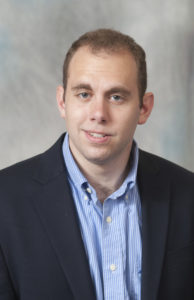 By RYAN BLOCK
By RYAN BLOCK
At the fifth annual Clean Energy and Sustainability Extravaganza at George Washington University (GWU) on February 15, 2019, attendees learned about the actions that are underway from universities in efforts to foster sustainability.
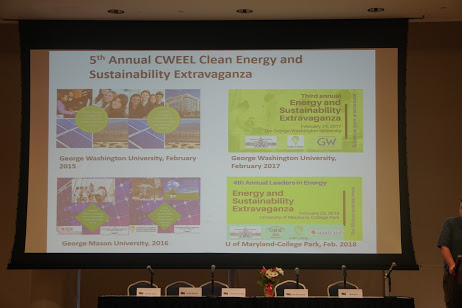
The University and Business Showcase panel sessions were kicked off by the keynote speaker, Dr. Todd M. La Porte, an associate professor in the Schar School of Policy and Government at George Mason University (GMU). Dr. La Porte highlighted the technological challenges of reducing emissions by 45% of 2010 levels by
However, Dr. La Porte inspired optimism for the audience by showing how technological developments are continuing for various renewable energy technologies and by describing how public attitudes towards climate change are shifting. Dr. La Porte also demonstrated that eight strategies currently exist for economic decarbonization. Policies that Dr. La Porte advocated for were investments in grid infrastructure and an elimination of subsidies to internalize the externalities of greenhouse gas emissions. Dr. La Porte concluded that we need to reconsider how we think about technology. Instead of thinking about Whata technology is, we need to redefine the technology as a political act that is part of a socio-technical system, influenced by public policy, institutions, markets, and societal actors.
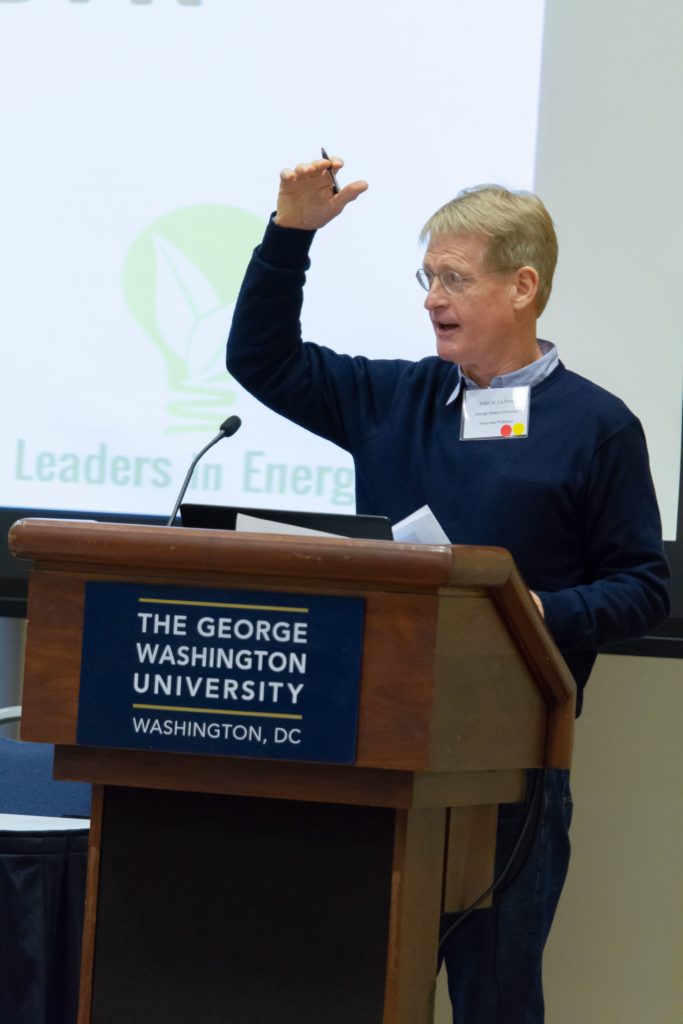
The University Showcase panel was moderated by Dr. Farah Singer, a Faculty Research Associate at the University of Maryland, College Park (UMD). The panelists included Meghan Chapple, the Director of Office of Sustainability and Senior Advisor on University Sustainability Initiatives at GWU; Sally DeLeon, Project Manager at the Department of Environmental Safety, Sustainability and Risk at UMD; Chauncey Jenkins, Facilities Manager at UMD; and Margaret Lo, University Sustainability Director, GMU.
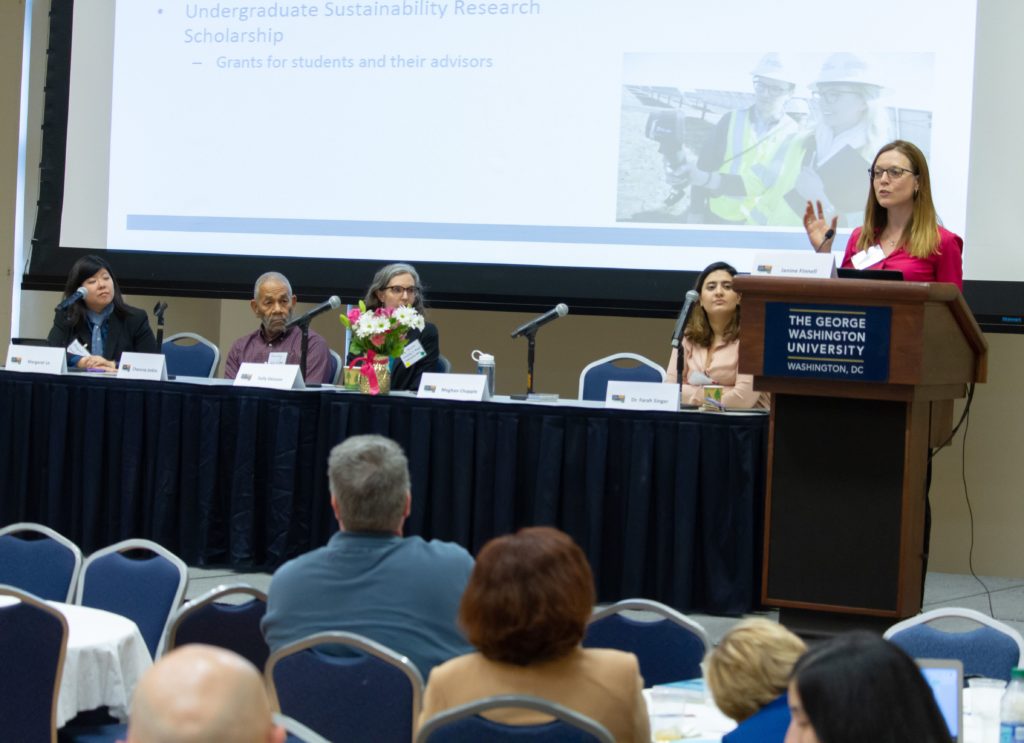
The panel began with a general discussion from Meghan Chapple about GWU and its sustainability goals. The campus has over 15,000 students in an urban environment within Washington D.C. and three locations in Virginia. At GWU, the vision of sustainability was inspired by the United Nations Sustainable Development Goals. As a result, the university looks at sustainability as a matter of economic challenges posed by resource limitations, environmental challenges based in thriving systems, and social issues driven by a desire to provide a quality of life for all. Within these three categories, GWU has seven strategic goals pertaining to natural space, air quality and climate, water, food, waste, urban environment, and investment. GWU also incorporates the concept of sustainability in academics – through an interdisciplinary minor in sustainability with a course team taught by five faculty members from different schools and by providing research on policies and pathways for sustainable systems. In addition, GWU engages its students in sustainability through a solar design competition called Charged Up, a GroW Garden on campus that donates food to Miriam’s kitchen, and through an Eco-Equity challenge that requires students to partner with social justice non-profits to support environmental justice initiatives. Lastly, GWU is involved with a sustainable investment fund, sustainable landscape guidelines, and the Capital Partners Solar Project, which is an innovative power purchasing agreement with Duke Energy that provides 52 MW of solar power capacity for GWU, American University, and the George Washington University Hospital.
The second speaker was Sally DeLeon from UMD. She compared the campus to a small city due to its 50,000 people, businesses that are not contracted out, and 12 colleges within the university. The Climate Implementation Plan has a goal of 50% carbon emissions reductions (relative to 2005 levels) by 2020 and to be at net zero emissions by 2050. UMD has already achieved a 49% reduction of emissions (as of 2017) thanks to improved energy efficiencies. However, the university relies on 19th century buildings and a steam-driven thermal powerplant that uses natural gas as a feedstock, posing difficulties for reaching carbon neutrality. However, the divisions at UMD fund offsets for air travel, while the university plants trees throughout Maryland and captures methane at landfills. On the other hand, the university’s sustainability initiatives require broad participation and behavioral change. UMD students pay an additional $12/year (amounting to a fund of over $400,000/year) to cover the sustainability fund, which has funded over 120 projects. One project includes a spagnum moss pool water treatment project to save water and prevent chemical use. Savings amount to over $5000/year! The TerpFarm is another project funded by the sustainability fund. It is a farm that teaches students about agriculture and it generates produce used in dining halls to promote a circular economy.
The third panelist was Chauncey Jenkins from UMD. He began by telling a story about a UMD student asking for his help to run energy audits on buildings three years ago. The energy audits that resulted have saved the university over $3 million! In his audits, he considers seasons, occupancy, and other variables to build a model of the building’s energy consumption. Jenkins’ second story pertained to the 2017 solar decathlon in Denver, Colorado. The students had to build an efficient house under 1000 square feet. The logistics of the competition meant that the house was supposed to be built on campus, deconstructed, shipped to Denver, rebuilt, deconstructed again, and finally shipped back to College Park. However, the house was never actually built on campus! There were challenges with the team’s organization and leadership that the team addressed in Denver.
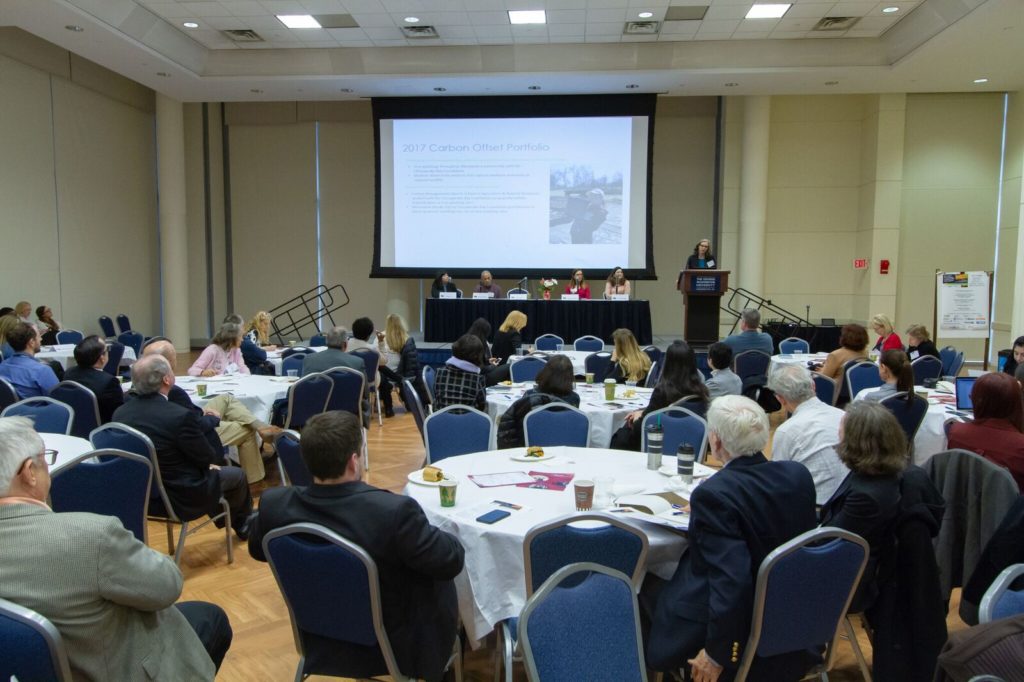
and questions in the discussion portion. Photo credit: Nick Hanson
The last panelist was Margaret Lo from GMU, a campus with over 37,000 students, 143 buildings, and over eight million square feet of space. Unlike UMD, GWU has a self-funded sustainability fund called the Patriot Green Fund (the fund) with over $100,000. One of the projects financed by the Honeybee Initiative, which stems from a collaboration between the business school and college of science to support honeybees on the campus. The project increases the school’s biodiversity while generating honey that is sold to students and used in dining halls. Another project from the fund is the two-semester long engineering capstone course. One semester is spent on design and fabrication, and the second semester is spent implementing the technology. In previous courses, students created robots to find cracking pipes to manage stormwater and students created devices to measure energy leakage in buildings. Lastly, there is a hydroponics greenhouse project that is located near dormitories. Up to 300 student volunteers harvest the produce to be used in dining halls. The students can use their volunteer hours to gain experiential learning credits and learn about issues in agriculture.
The panel concluded with a question and answer session from the audience. Participants asked about offsetting flights, how the differences in the political environments between Maryland and Virginia contribute to their similar and different sustainability initiatives, and the creation of videos to inspire students and schools towards sustainability.
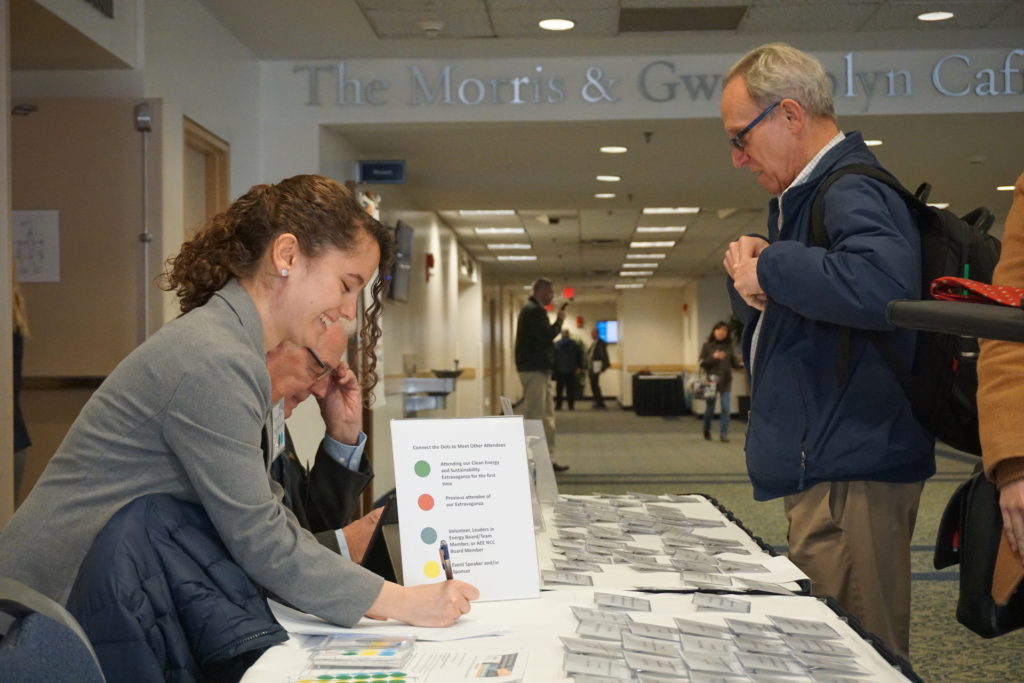
Ryan Block graduated with a Masters of Public Policy degree (specializing in energy and environmental policy) from the School of Public Policy at the University of Maryland, College Park. He researched state renewable energy portfolio standards as a tool for decarbonization, grid modernization, and renewable energy expansion. Ryan is currently seeking employment in the energy and environmental policy fields.


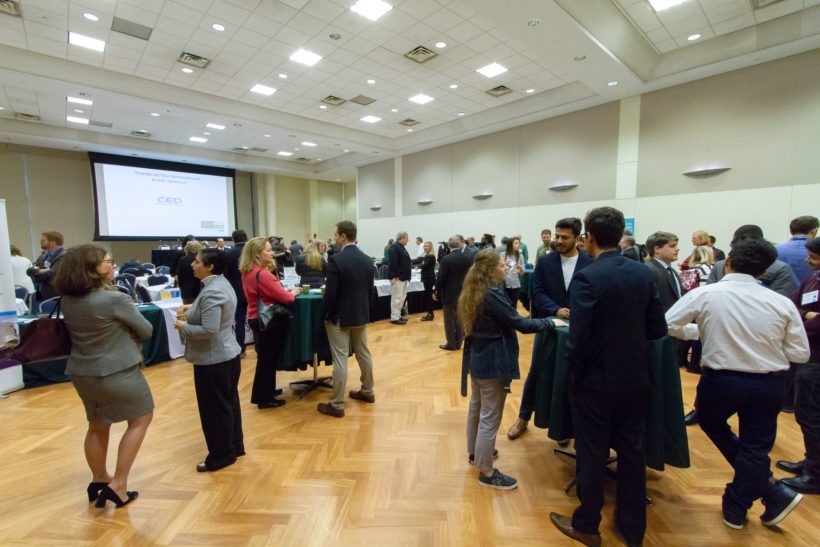
Leave a Reply